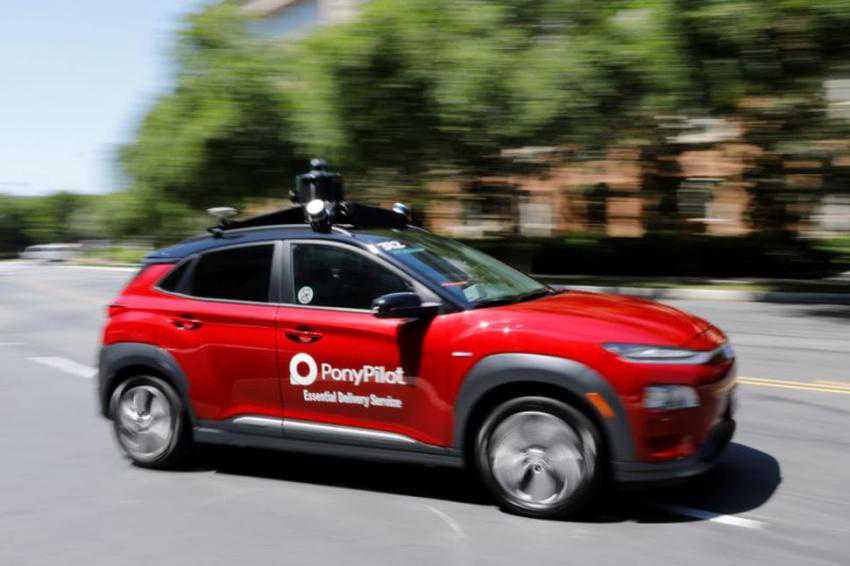Self-driving vehicles get in on the delivery scene amid COVID-19
04 May, 2020

Self-driving cars, trucks, sidewalk robots and shuttles are rolling from the labs and parking garages and onto American streets to help deliver groceries, meals, and medical supplies.
Although self-driving car companies have paused on-road testing in the U.S., as it is not considered an important business, pivoting to deliveries allows them back on the road to gather more data.
Since mid-April, the cars of General Motors Co's self-driving unit Cruise have flashed a "SF COVID-19 Response" to remain their windshields because they deliver food from SF-Marin Food Bank and SF New Deal to seniors in need. Each car has two safety drivers; one wears a mask and gloves to drop bags off at the entranceway.
"We're not making a simple pivot away from ride-sharing," said Rob Grant, vice president of government affairs at Cruise. "What I really do see is this pandemic really showing where self-driving vehicles can be of use in the future. Which includes in contactless delivery like we're doing here."
Toyota-backed Pony.ai said its cars are back on the road in California after a pause. Now they are delivering groceries in Irvine from local e-commerce platform Yamibuy and work with the town of Fremont to provide meals to an area emergency shelter program.
Meanwhile, in early April Softbank-backed Nuro became the second company in California to receive a permit to use a driverless vehicle on public roads. Co-founder Dave Ferguson said Nuro was putting its latest R2 vehicles to work delivering medical supplies to a momentary COVID-19 hospital in Sacramento and a temporary medical facility in San Mateo County.
None of the those three companies are making any money from their deliveries, but are gaining experience and data on delivery operations, several operators said.
Beep, an autonomous shuttle company, said in early April that it had been partnering with the Jacksonville Transportation Authority and shuttle maker Navya to transport COVID-19 tests at Mayo Clinic in Florida.
Self-driving truck company TuSimple, in which United Parcel Service Inc has invested, has kept its 40 autonomous trucks on the road for paying customers, but is offering a free service for food banks in Texas and Arizona, according to its chief product officer, Chuck Price.
And on Wednesday, Russian tech giant Yandex, that includes a self-driving car team, said the pandemic helped speed up the signing of its first commercial contract with the city of Skolkovo, a tech hub, to help deliver mail and small packages using its sidewalk robot, Yandex.Rover.
Source: japantoday.com
TAG(s):
